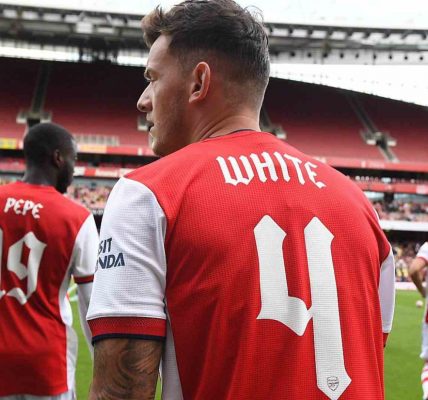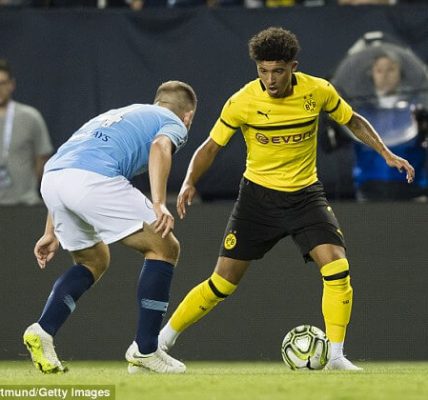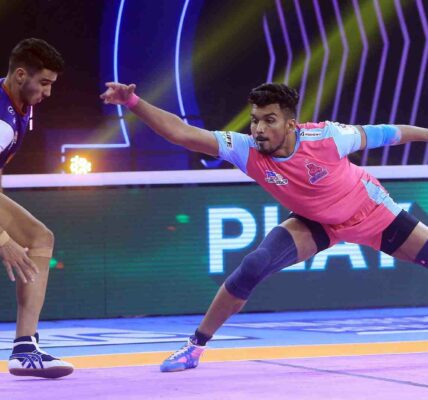Leicester City’s sublime 2015 triumph will provide inspiration after shocking collapse
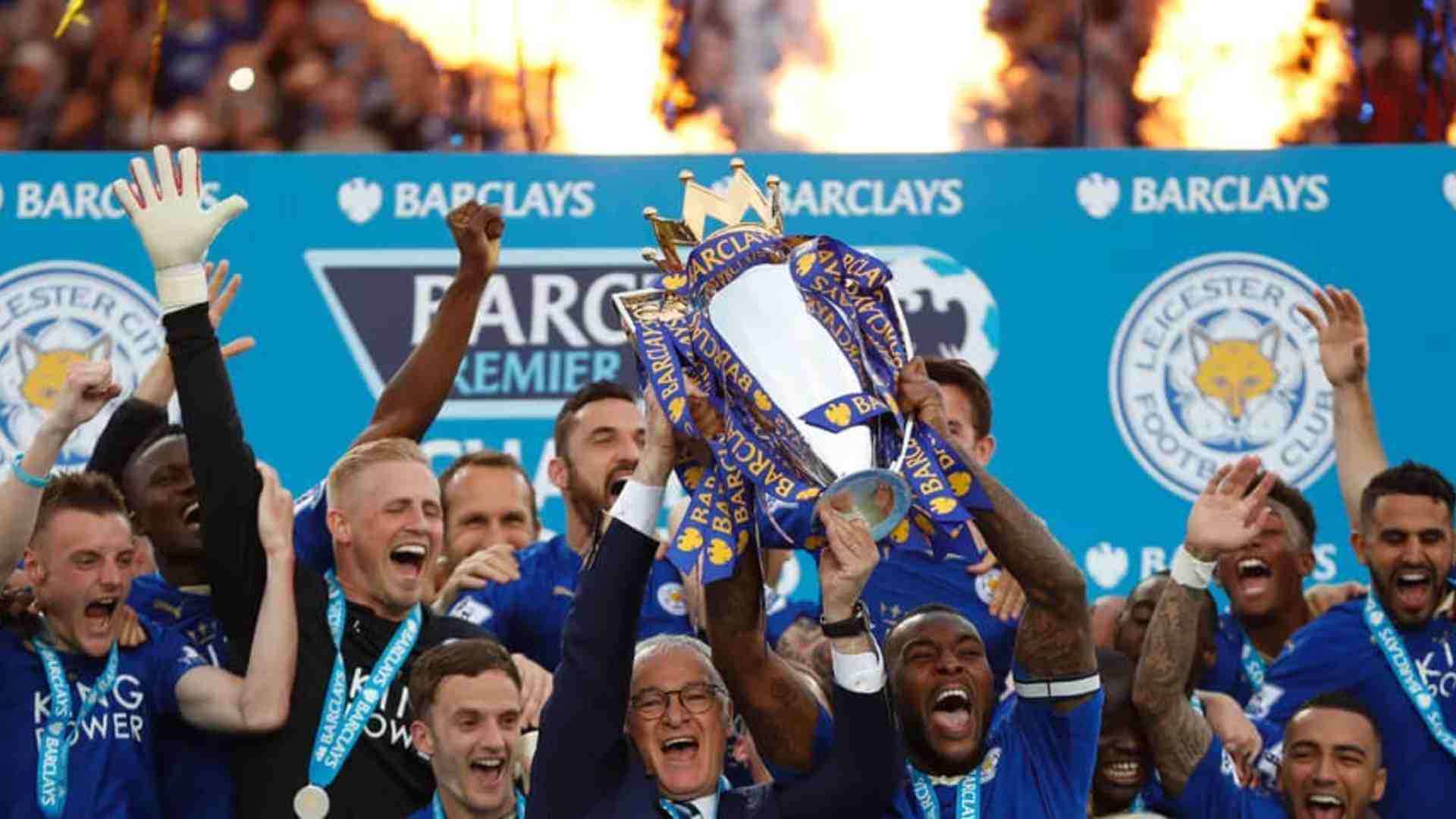
In an era when money counts for everything, I think we give hope to everybody: Claudio Ranieri.
There is simply no precedent for Leicester City’s astonishing title triumph in 2015/16. No achievement in sporting history has ever been so improbable; nothing comes close to matching the pre-season odds of 5000/1, which became a major discussion point as Claudio Ranieri’s warriors edged closer to the title. Previously, all 23 Premier League title-winning sides had one of the five highest wage bills in the division. Leicester’s, however, was among the bottom five. As Leicester City fans rue the club’s shocking collapse having squandered a 14-point cushion to finish 5th, here’s a look back at happier times.
Despite being widely considered a relegation candidate, Leicester started encouragingly, stayed within touching distance of the leaders for longer than anyone expected. Theirs was a truly wonderful underdog victory, the type that simply didn’t appear possible considering the huge financial inequalities in the Premier League – Leicester’s wage bill was around one-quarter of Chelsea’s. Opposition players, rival managers and fans across the country united in support of Ranieri’s side, willing them over the finishing line. In Premier League terms it was a unique event unlikely to be repeated.
Leicester City. Champions of England. pic.twitter.com/WRwfysTn2N
— Leicester City (@LCFC) May 2, 2016
There was, however, a template for Ranieri and Leicester City. English football had increasingly been influenced by successful European sides, as the sudden obsession with Pep Guardiola’s Barcelona and Jürgen Klopp’s Borussia Dortmund demonstrated. For a true underdog victory, meanwhile, there was the tale of Atlético Madrid’s improbable 2013/14 La Liga success. This was previously considered the biggest upset of modern football times, as Diego Simeone’s team ended Barcelona and Real Madrid’s decade-long duopoly by clinching the title at Camp Nou – serenaded by Barça supporters who couldn’t help but admire them. This wasn’t quite a Leicester tale – Atlético were 100/1 rather than 5000/1 – but like the Premier League, La Liga had previously been dominated by an even more untouchable, even more exclusive elite. Atlético smashed that ceiling, and pointed the way for others to upset the traditional big boys.
The fascinating story behind Leicester’s fairy-tale season is their gradual evolution into that type of side. In the previous season, 2014/15, Leicester were playing in the Premier League for the first time in over a decade. It initially appeared a fleeting return, as the Foxes were in the relegation zone for over half the campaign and bottom for 17 consecutive matches. But a late-season surge, in part because manager Nigel Pearson switched to a three-man defence, proved crucial. Having won just four of their first 29 matches, Leicester won seven of their last nine, with that winning streak only broken by a defeat to eventual champions Chelsea, and a goalless draw at Sunderland where a point would seal survival. Leicester then stunned the footballing world by appointing Claudio Ranieri. He’d most recently been seen spectacularly failing with the Greek national side, who suffered an embarrassing defeat to the Faroe Islands.
At Leicester he lasted only 20 months, and was dismissed with the club hovering just above the relegation zone. In that period, though, he recorded the most sensational title victory in English football history. ‘They were strong, very fighting,’ Ranieri said of Leicester’s 2014/15 campaign, at his first Leicester press conference, ‘but I think they need a little more tactics.’ Throughout his stint at Chelsea, Ranieri was nicknamed ‘the Tinkerman’ for his tendency to rotate, change formation and make surprise substitutions.
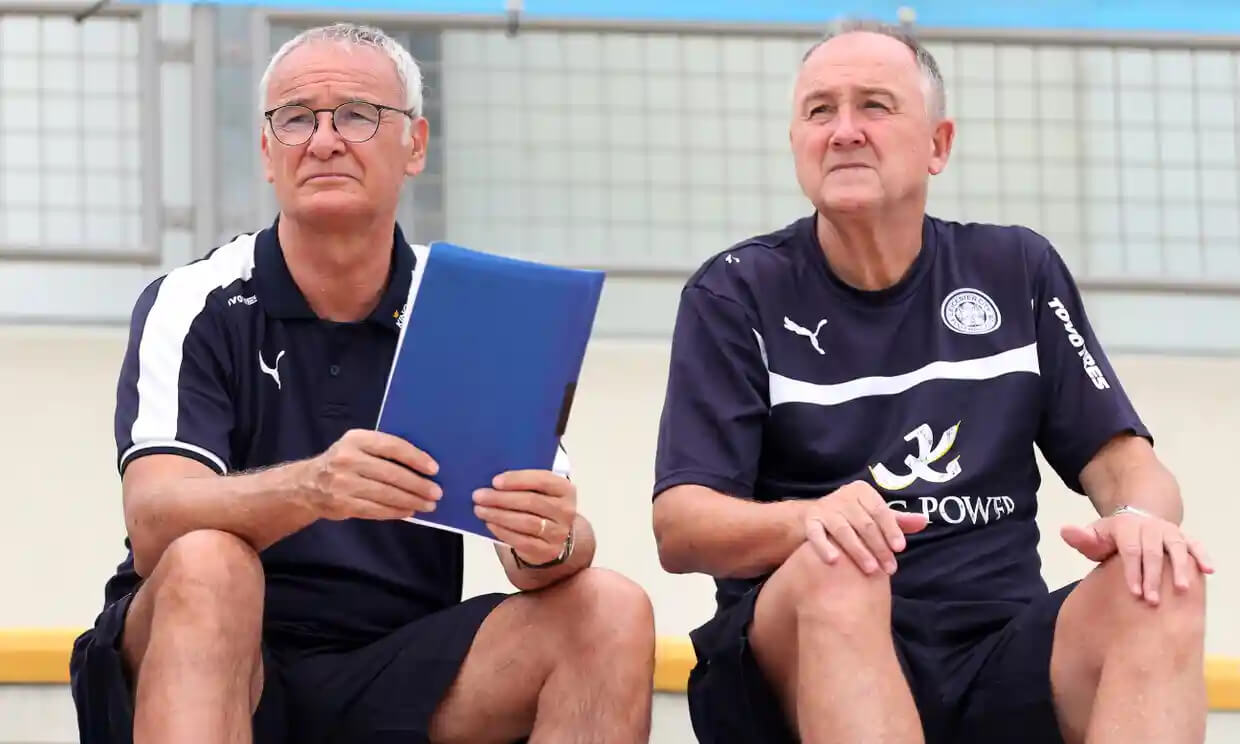
Initial Phase:
In the opening weeks Ranieri’s left-back was Jeffrey Schlupp, a flying wing- back in Pearson’s system, whose frequent powerful runs had earned him Leicester’s Players’ Player of the Year award. But his attack-minded mentality didn’t work at left-back, and Ranieri knew his forward running was exposing the centre-backs. Instead, he fielded Chrstian Fuchs, who lacked Schlupp’s attacking dynamism but was six foot one, solid, and could tuck inside to protect Morgan and Huth.
On the opposite flank, Ritchie De Laet had made too many defensive mistakes, so Danny Simpson replaced him and played more conservatively. They were given specific instructions: you can only overlap when Leicester are losing. The change was dramatic. Leicester dropped deeper, played narrower and conceded space on the outside of, rather than between, the four defenders.
The strong duo of Morgan and Huth were happier remaining on the edge of their own box, and heading away crosses rather than playing higher up and chasing quicker opponents into the channels.
‘Jeff and Ritchie going forward are lightning,’ explained goalkeeper Kasper Schmeichel. ‘But it left huge, huge spaces to be exposed in behind, we needed to change something. Now we have four defenders in there.’
It’s a cliché to insist Italian managers love defensive football, but Ranieri continually emphasised his ‘Italian tactics’, and he deliberately took a further step backwards to concentrate on keeping a clean sheet. Astonishingly, he dropped Mahrez, the right-winger who had recorded five goals and three assists in his first seven games, and would eventually be voted PFA Player of the Year.
For two games, with Ranieri so determined to improve Leicester’s defensive structure, Mahrez was omitted. Not injured, not rested, not rotated, simply excluded from the starting XI for tactical reasons. Schlupp played on the left of midfield, Albrighton started on the right. The clean sheet still didn’t come, but Leicester looked better defensively against Norwich and Southampton. Then, ten matches into the campaign, they bagged their first clean sheet, against Crystal Palace.
Ranieri recalled Mahrez, but not in a position where he had defensive responsibility, instead using the Algerian behind Vardy – the two combined for the only goal of the game. ‘It was more of an Italian match than an English one,’ grinned Ranieri.
Turning Point:
From this point on, Leicester kept clean sheets in exactly half of their remaining matches, including an incredible spell of 12 in 17 games as they evolved from surprise contenders to title favourites in the new year. Defensively, Leicester were well organised in open play and somewhat physical at set-pieces, with Huth admitting he often strayed beyond what is considered permissible.
The following season, when referees were instructed to punish shirt-pulling at corner kicks more keenly, Leicester struggled and right-back Simpson claimed this refereeing change affected them badly. The shift to a deeper, more compact defensive block also suited Vardy, Leicester’s second key player, who became the first footballer to score in 11 consecutive Premier League matches, an unthinkable achievement considering he’d managed just five goals in the whole of the previous season.
“It’s 11, it’s heaven for Jamie Vardy!”@PremierLeague history was made on this day two years ago… pic.twitter.com/VbSPqApaks
— Leicester City (@LCFC) November 28, 2017
He dominated headlines when Leicester’s form seemed a novelty rather than making them serious title challengers. While everyone was focusing upon his unprecedented scoring streak, Leicester went top with a 3–0 win at Newcastle in November, and would hold that position for 20 of the next 23 match days.
The Underdogs:
Leicester’s underdog status was also crucial to their footballing style. Traditionally big clubs can’t solely depend upon counter-attacking, especially at home, because opponents tend to defend deep. But Leicester were allowed to play that way because opponents always underestimated them, playing in their default style rather than adjusting their approach to deny Leicester space.
A classic example was Leicester’s 3–0 victory over Swansea, who continually pushed their full-backs forward, which created space for Vardy and Mahrez, who hit a perfect hat-trick (right foot, left foot, header). Mahrez, Leicester’s most key player, proved extremely important during this stage of the season. Although he was brilliant on the counter-attack, he wasn’t simply a space invader like Vardy, and could dribble past opponents with trickery, which was essential now that opponents were parking men behind the ball.
A dribbler, an assist maker and a goalscorer in one, Mahrez was Leicester’s best all-round footballer, and his sensational contribution justified the fact that he played a considerably more advanced role than Albrighton on the opposite flank. Like Cristiano Ronaldo and Luis Suárez, the contribution from his counter- attacks excused his not tracking the opposition full-back. He was deservedly voted Player of the Year by his fellow professionals. Shortly before Christmas, Vardy and Mahrez were the two goalscorers in Leicester’s famous 2–1 win over reigning champions Chelsea, who were badly struggling in the bottom half of the table.
Mourinho once said Ranieri ‘had the mentality of someone who doesn’t need to win … he is almost 70 years of age, he has won a Super cup and another small trophy, and he is too old to change his mentality.’ But that mentality proved perfect for playing down expectations and coping with pressure.
Ranieri continually insisted Leicester’s target was to avoid relegation, then to qualify for Europe, then to qualify for the Champions League. Gradually, though, it became clear Leicester were genuine title challengers.
Season defining victory against Manchester City:
The game against Manchester City at the Etihad had not even witnessed a minute’s action, and Leicester were already demonstrating their ball-winning qualities. Upon regaining possession Leicester immediately switched play to Mahrez on the right. By this stage of the season, the Algerian’s determination to cut inside onto his left foot was well-established, so City boss Manuel Pellegrini fielded Fabian Delph as a narrow left-sided midfielder, specifically to prevent Mahrez moving inside.
He and left-back Aleksandar Kolarov were clearly supposed to push Mahrez down the line. But to their surprise, Mahrez was entirely happy to go there – he darted towards the byline, catching out Kolarov, who clumsily fouled him. From the ensuing free-kick, Mahrez crossed for Huth to score. The nature of these opening two minutes demonstrated Leicester’s evolution. They realised City would attempt to prevent them counter-attacking, so they changed their game plan and pressed high.
Mahrez realised he would struggle to find space when he drifted inside, so he moved outside. This is what great champions do; when their opponents can proactively nullify their strengths they diversify, not simply excelling at their favoured moves but also at the alternatives. Of course, the beauty of going 1–0 ahead was that Leicester could play on the break after all, with Mahrez’s outstanding second goal a perfect example.
On this day in 2016… the world starting to finally believe that Leicester City could do it!
Man City 1 Leicester 3, two goals from Huth and this from Riyad Mahrez #lcfcpic.twitter.com/chPBS4uetZ
— ‘The Amazing’ LCFC (@Champions_LCFC) February 6, 2019
Once again he surprised an opposition defender, this time Martin Demichelis, by checking to his right, and then smashing the ball past Joe Hart with his weaker foot. Huth scored another goal to make it 3–0, and while Sergio Agüero pulled one back as Manchester City rallied, Leicester won 3–1 and were generously applauded off the pitch by the opposition supporters.
This was a momentous day – Leicester went five points clear at the top, became the bookmakers’ favourites, and as Ranieri later admitted, this was the first time he truly believed his team could win the title.
Chelsea hand Leicester their dream Premier League title:
Going into the final fortnight of the campaign, Leicester were on the brink of securing the title. The Foxes needed one more victory against Everton or Chelsea – but if Tottenham slipped up away at Stamford Bridge, Leicester’s title would be confirmed early.
Spurs raced to a 2–0 lead at Stamford Bridge, but then something clicked for the home side. Beforehand, Chelsea’s players had been unanimous in their support for Leicester.
‘I don’t want Spurs to win it, to be honest,’ admitted midfielder Cesc Fàbregas. ‘For what they’ve done through the season, I’d love Leicester to win the Premier League.’
Winger Eden Hazard, who had won the 2014/15 PFA Player of the Year award when Chelsea triumphed, but spent much of 2015/16 off-form and completely disinterested, echoed the sentiment.
‘We – the fans, the club, the players – don’t want Tottenham to win the Premier League,’ he admitted. ‘We hope for Leicester because they deserve to be champions.’
After half-time Chelsea rallied, got a goal back, and then Hazard drove through the Spurs defence, played a one-two, before bending the ball majestically into the top corner. 2–2.
Wonder if people in Leicester are celebrating “Eden Hazard day”??
1 year anniversary of that goal… & the celebrations. #LCFC pic.twitter.com/Okt1WrNBee
— John Bennett (@JohnBennettBBC) May 2, 2017
LEICESTER WERE CHAMPIONS!!! Chelsea’s players celebrated, Leicester’s players did too – Jamie Vardy was literally having a party – and so did most of Britain.
Leicester, astonishingly, had clinched the Premier League with two games to spare, and would eventually triumph by ten clear points.



